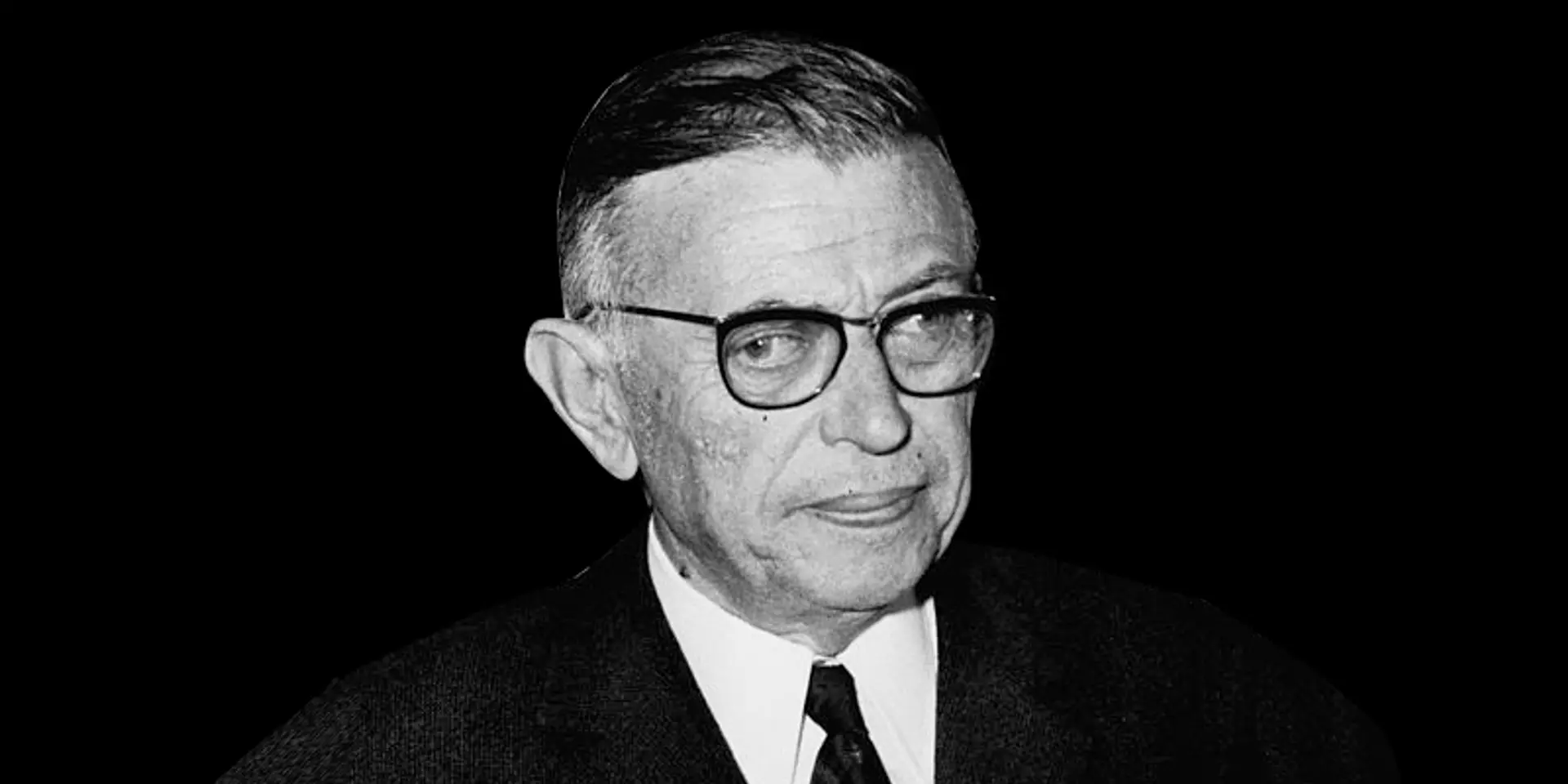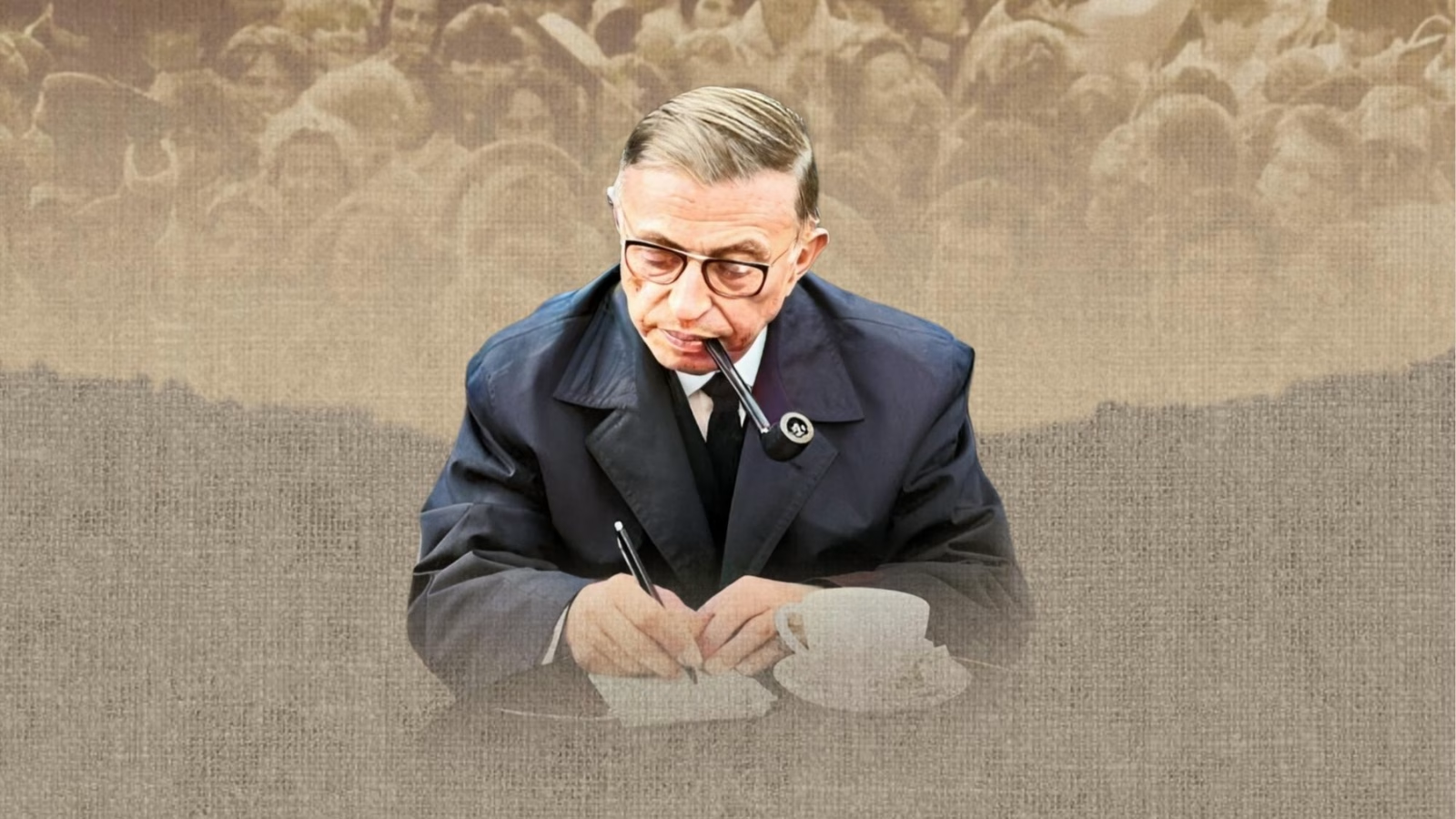Jean-Paul Sartre’s philosophical landscape is anchored in the assertion that “existence precedes essence.“
This principle not only defines Sartre’s existentialism but also heralds a new epoch in 20th-century thought.

Existence and Essence: A Reversal of Philosophical Norms
Traditionally, essence—the defining characteristics of an entity—precedes existence.
A knife, for instance, is conceived with the purpose of cutting; its essence dictates its creation.
However, Sartre posits that humans first exist without predetermined purpose and subsequently define themselves through actions and choices.
In his words:
“Man first exists: he materializes in the world, encounters himself, and only afterward defines himself.”
This perspective distinguishes Sartre’s existentialism from classical philosophical doctrines.
The Human Condition: Freedom, Isolation, and Accountability
In Sartre’s view, humans are inherently free, unbound by predetermined paths.
This absolute freedom, however, is accompanied by the weight of responsibility.
Without divine guidance or inherent purpose, individuals must forge their own meanings and bear the consequences of their choices.
Sartre encapsulates this notion succinctly:
“Man is condemned to be free.”
Even in inaction, a choice is made, underscoring the inescapable nature of freedom and its attendant responsibility.

Embracing the Void: The Role of Nothingness in Human Existence
Central to Sartre’s philosophy is the concept of “nothingness.”
Humans possess the unique ability to conceive of what is not, introducing a void into the fabric of being.
This capacity for negation allows individuals to question, to imagine alternatives, and to recognize the absence of meaning, thereby propelling the quest for self-defined purpose.
In a Godless Universe: Crafting Meaning Amidst Absurdity
As an atheist, Sartre contends that in the absence of a divine arbiter, humans bear the sole responsibility for imbuing their lives with meaning.
Each choice reflects not only personal values but also sets a precedent for humanity at large.
He asserts:
“When we choose, we choose for all mankind.”
This perspective amplifies the ethical weight of individual decisions, positioning each person as a beacon for collective human values.

The Burden of Freedom: Navigating Anxiety and Despair
The realization of absolute freedom can engender profound anxiety.
Without external anchors, individuals confront the daunting task of self-definition amidst an indifferent universe.
Sartre’s literary works, notably “Nausea,” delve into this existential angst, portraying characters grappling with the vertigo of freedom and the search for authenticity.
Existentialism: Beyond Philosophy, a Call to Authentic Living
Sartre’s existentialism transcends theoretical discourse, serving as a clarion call for individuals to live authentically.
By acknowledging the absence of inherent meaning, embracing freedom, and accepting responsibility, one can craft a life of purpose amidst the void.
In a world devoid of prescribed paths, Sartre invites us to become the architects of our own existence.















What do you think?
Show comments / Leave a comment